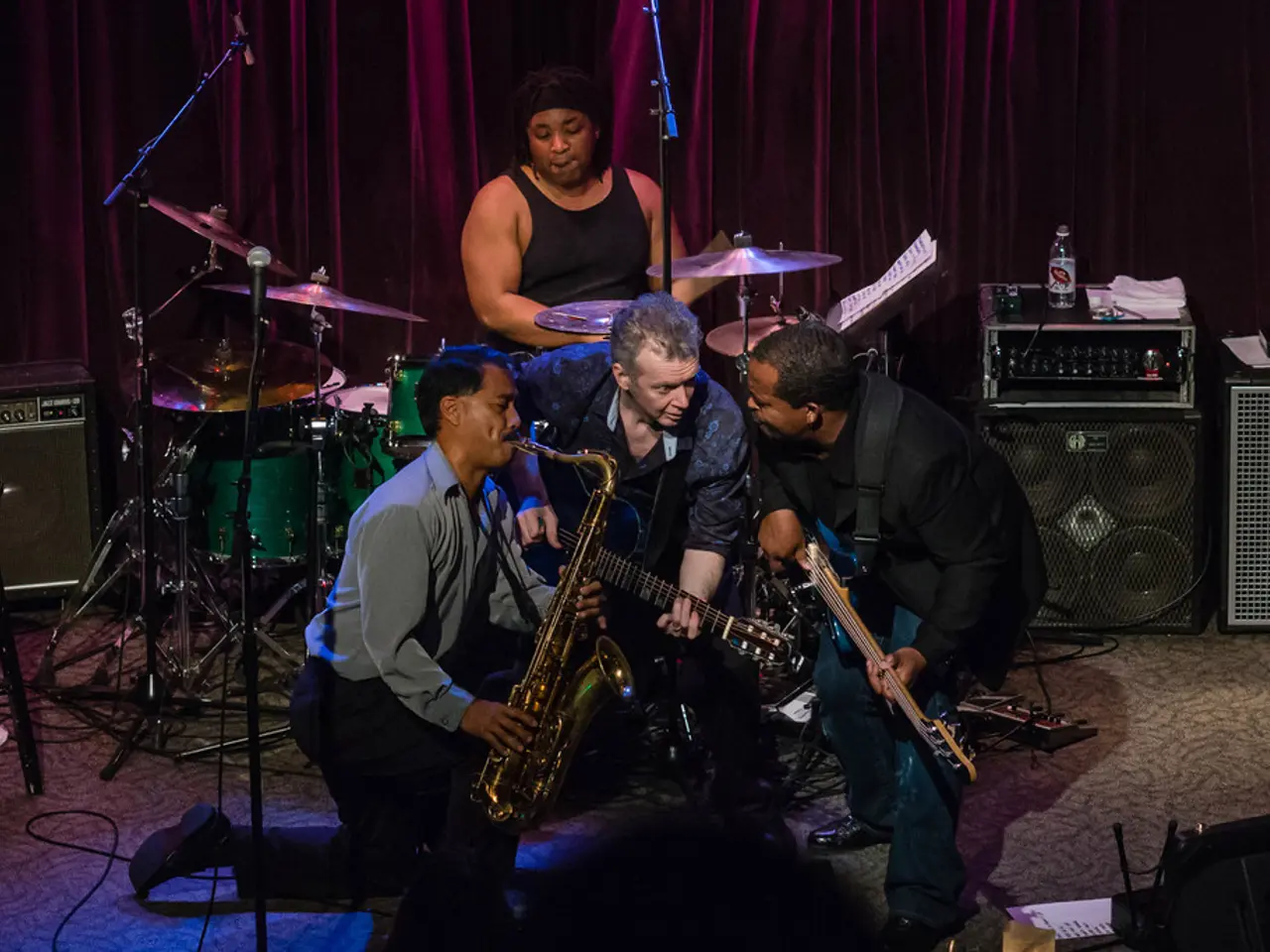AI's Influence Resounds: The Effects of Artificial Intelligence on the Music Sector
In the ever-evolving world of music, a hot topic of debate has arisen: who holds the copyright for music produced by AI, and is AI-generated music original or simply a remix of existing tunes?
As Artificial Intelligence (AI) continues to make significant transformations in the industry, the question of its role in music creation is under scrutiny. Some argue that AI can complement human creativity and emotion, while others contend that it may not always align with what people want to hear.
AI's capabilities extend beyond automating tedious tasks in music production, freeing up musicians' time to focus on creative aspects. It can also analyze and forecast patterns from vast amounts of data, providing valuable insights for music producers and marketers.
AI technology can evaluate and fix pitch and timing inaccuracies in vocal recordings, a task that would traditionally require manual editing. Furthermore, AI can affordably compose fresh, creative music, benefiting independent artists who may not have the resources for professional composition.
Collaboration between humans and machines in music-making is a possibility as technology advances. AI-driven music producers like Jukedeck, AIVA, and Amper Music can compose in various musical genres. Spotify, for instance, utilizes machine learning algorithms to create personalized playlists for users based on their listening patterns.
However, not everyone is convinced. Some students at Bronx Science, for example, express negative opinions about AI-generated music not capturing the heart and passion of human musicians. Others fear that AI may overshadow emerging talent.
The debate is far from settled, with opinions about AI's impact on the music industry mixed. Some view AI as a tool that can assist human composers and help with experimentation, while others see it as a threat to the very essence of music as a precious way to express the human spirit.
As AI continues to develop and show no signs of stopping, the music industry, as well as students and industry professionals, must navigate these issues ethically to ensure AI enhances rather than diminishes the art of music. After all, the question remains: can a computer truly capture the essence of the human spirit through music?
Read also:
- Tesla is reportedly staying away from the solid-state battery trend, as suggested by indications from CATL and Panasonic.
- Review of the 2025 Lamborghini Revuelto: Blazing Beasts on Wheels
- Tech giant Apple debuts sports app integrating betting odds provided by DraftKings
- Examining Digital Payment Cards in Nigeria (2025)








